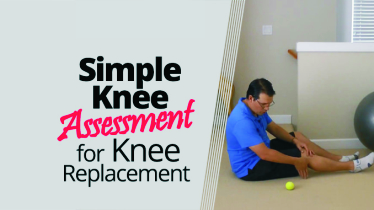Hernia /Piles/Kidney Stone/Knee Replacement Treatment in Sanket Surgical Hospital
How to Cure Piles , Piles Symptoms, Piles Home Remedies, Piles Pain Relief, Piles Disease, Hernia Symptoms, Hernia Treatment, Hernia Pain, Hernia Operation, Hernia Pain Relief, Artificial Joint Replacement, Joint Replacement Center, Ball Joint Replacement Center For Joint Replacement,Orthopedic Joint Replacement, Joint Replacement Operation, Surgical Replacement Of A Joint, Hip Replacement Repair Surgery,Total Hip Replacement Surgery Procedure, Total Joint Replacement Surgery, Total Knee Joint Replacement Surgery, Sanket Surgical Hospital Covered Bapunagar, Nikol, Thakkarbapa, Odhav, India Colony, Hirawadi, Viratnagar
Treatment of a hernia
depends on whether it is reducible or irreducible and possibly strangulated.
- Reducible hernia
- In general, all hernias should be repaired to avoid the possibility of future intestinal strangulation.
- If you have preexisting medical conditions that would make surgery unsafe, your doctor may not repair your hernia but will watch it closely.
- Rarely, your doctor may advise against surgery because of the special condition of your hernia.
- Some hernias have or develop very large openings in the abdominal wall, and closing the opening is complicated because of their large size.
- These kinds of hernias may be treated without surgery, perhaps using abdominal binders.
- Some doctors feel that the hernias with large openings have a very low risk of strangulation.
- The treatment of every hernia is individualized, and a discussion of the risks and benefits of surgical versus nonsurgical management needs to take place between the doctor and patient.
-

http://business24online.com/company/sanket-surgical-hospital-hernia-piles-stone-joint-knee
- Irreducible hernia
- All acutely irreducible hernias need emergency hernia repair because of the risk of strangulation.
- An attempt to reduce (push back) the hernia will generally be made, often after giving medicine for pain and muscle relaxation.
- If unsuccessful, emergency surgery is needed.
- If successful, however, treatment depends on the length of the time that the hernia was irreducible.
- If the intestinal contents of the hernia had the blood supply cut off, the development of dead (gangrenous) bowel is possible in as little as six hours.
- In cases in which the hernia has been strangulated for an extended time, a surgeon will perform surgery to check whether the intestinal tissue has died and to repair the hernia.
- In cases in which the length of time that the hernia was irreducible was short and gangrenous bowel is not suspected, you may be discharged from the hospital.
- If a hernia that appears irreducible is finally reduced, it is important for a patient to consider a surgical correction. These hernias have a significantly higher risk of getting incarcerated again.
Hernia /Piles/Kidney Stone/Knee Replacement Treatment in Sanket Surgical Hospital
Piles Treatments
In the majority of cases, simple measures will alleviate symptoms while hemorrhoids get better without treatment. However, medicines and even surgery may sometimes be needed.
Specialist ultrasonic device for hemorrhoid surgery.
Symptoms can be relieved in the following ways. However, they will not eliminate the hemorrhoids:
- Topical creams and ointments: Over the counter (OTC) creams or suppositories, which contain hydrocortisone, are. There are also pads which contain witch hazel, or a numbing agent that can be applied to the skin.
- Ice packs and cold compresses: Applying these to the affected area may help with the swelling.
- A sitz bath using warm water: A sitz bath is placed over the toilet. Some pharmacies sell them, and they may relieve the burning or itching symptoms.
- Moist towelettes: Dry toilet paper may aggravate the problem.
- Analgesics: Some painkillers, such as aspiring ibuprofen, and acetaminophen may alleviate the pain and discomfort.
Hernia /Piles/Kidney Stone/Knee Replacement Treatment in Sanket Surgical Hospital
Knee Replacement Treatment
There is a range of treatments for a knee replacement infection, including both nonsurgical and surgical procedures.

Nonsurgical treatment
Some knee replacement infections are superficial, which means that the infection has reached the skin and tissue around the joint but does not affect the artificial joint itself.
A superficial knee replacement infection may be treated with oral or intravenous (IV) antibiotic.
Hernia /Piles/Kidney Stone/Knee Replacement Treatment in Sanket Surgical Hospital
Surgical treatment
If a knee replacement infection goes deeper than the skin and tissue around a joint, it may need to be treated surgically. Surgical treatment options include:
- Debridement: This is a surgical washout of the joint. Any contaminated soft tissue is removed, and the artificial joint is cleaned. Plastic liners or spacers in the artificial joint may be replaced. The doctor will prescribe IV antibiotics to be taken after surgery.
- Staged surgery: This involves a series of surgeries to remove and replace the artificial joint. This may be necessary if the infection has developed months or years after the original knee replacement.
The different stages of staged surgery typically include:
- Removal of the artificial joint: When the infection is deep and long-lasting, the artificial joint will need to be removed.
- Joint washout: Washing helps get rid of infected soft tissue in the joint.
- Placement of antibiotic spacer: This helps maintain joint space and keeps the joint aligned while the infection is treated.
- IV antibiotics: These help kill the infection. The doctor may prescribe a course that lasts up to 6 weeks.
- New knee replacement surgery: Once the infection has been treated, another knee replacement surgery can be carried out. The doctor will remove the antibiotic spacer and give the person a new artificial knee joint.
Hernia /Piles/Kidney Stone/Knee Replacement Treatment in Sanket Surgical Hospital
Kidney Stone Treatment
Treatment for kidney stones varies, depending on the type of stone and the cause.
Small stones with minimal symptoms
Most small kidney stones won’t require invasive treatment. You may be able to pass a small stone by:
- Drinking water. Drinking as much as 2 to 3 quarts (1.9 to 2.8 liters) a day may help flush out your urinary system. Unless your doctor tells you otherwise, drink enough fluid — mostly water — to produce clear or nearly clear urine.
- Pain relievers. Passing a small stone can cause some discomfort. To relieve mild pain, your doctor may recommend pain relievers such as ibuprofen (Advil, Motrin IB, others), acetaminophen (Tylenol, others) or naproxen sodium (Aleve).
- Medical therapy. Your doctor may give you a medication to help pass your kidney stone. This type of medication, known as an alpha blocker, relaxes the muscles in your ureter, helping you pass the kidney stone more quickly and with less pain.
Hernia /Piles/Kidney Stone/Knee Replacement Treatment in Sanket Surgical Hospital



http://business24online.com/company/sanket-surgical-hospital-hernia-piles-stone-joint-knee
LikeLiked by 1 person